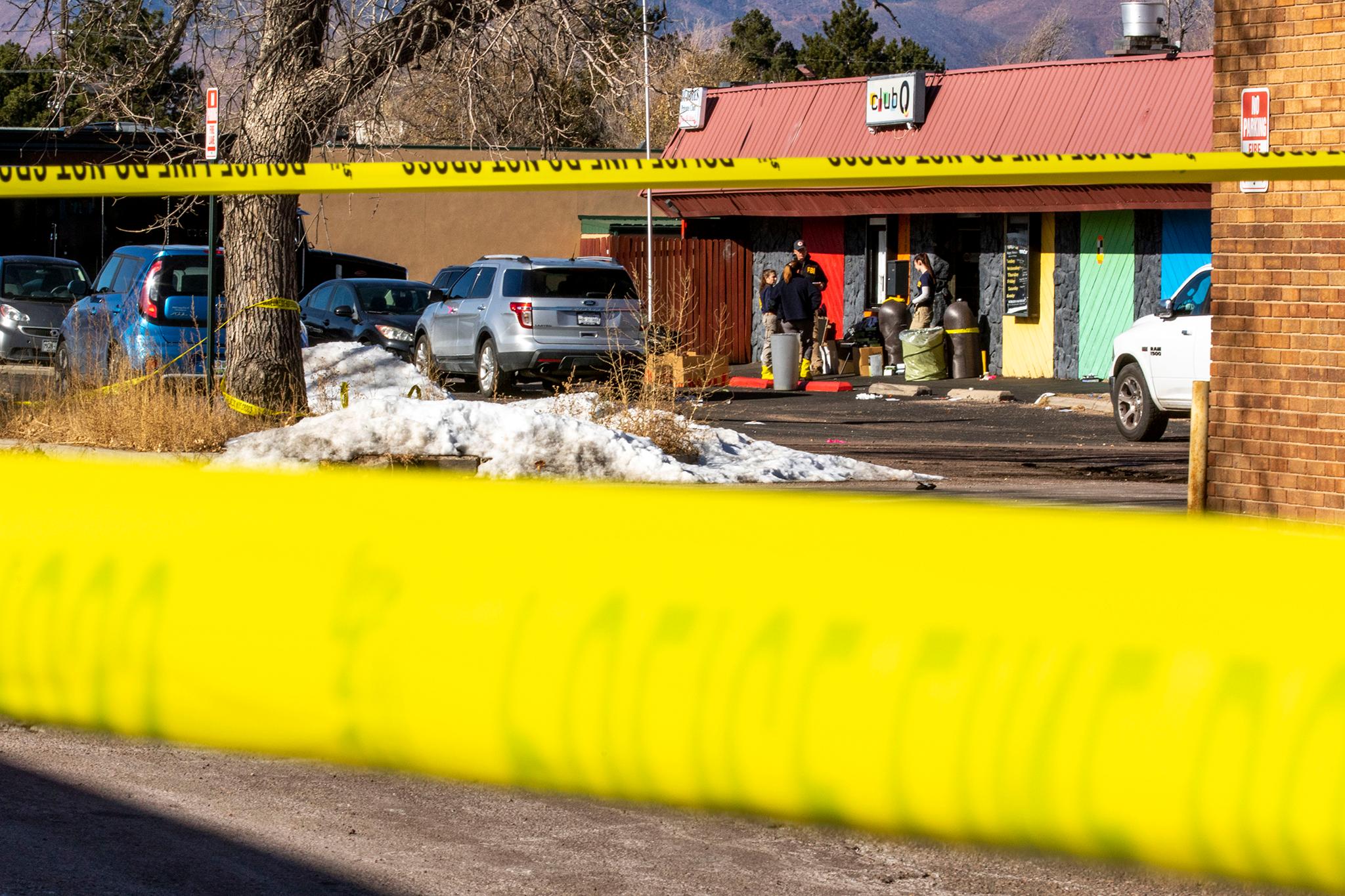
Updated: 12/9, 1:31 p.m.
A judge unsealed 2021 arrest documents of the alleged Club Q shooter Anderson Lee Aldrich Thursday.
Judge Robin Chittum ordered the documents to be released following growing criticism of law enforcement’s actions on the day of the incident as well as a motion by the DA's office and the media.
Chittum said the "profound public interest in scrutinizing law enforcement actions" related to the case outweighs the suspect's right to privacy.
Anderson Lee Aldrich was arrested in June 2021 for allegedly holding the suspect’s own grandparents hostage in a basement and a bomb threat. The incident led to a lengthy standoff and the evacuation of 10 homes in the neighborhood.
Up until Thursday, the DA's office said it had to say, by law, that the records did not exist. That's because the charges from last year were dismissed and all related records were sealed, in accordance with Colorado law.
On Thursday, 4th Judicial District Attorney Michael Allen went into detail about the case and why his office was unable to prosecute the suspect.
He said authorities were called to Aldrich's mother's residence in June 2021. At that time, the mother said Aldrich made threats of having a bomb. Another relative said Aldrich had mentioned wanting to become a mass shooter.
Aldrich was later arrested and charged with five felonies including three counts of first degree kidnapping and two counts of menacing. Aldrich was held on a $1 million bond. Two weapons — a ghost gun with a 9 mm glock frame and no serial number, make, or model and an assault rifle — were seized and remain in the custody of the El Paso County Sheriff’s Office.
Aldrich was released on bond within a few months, after the family used words in court like "loving," "passionate" and "a sweet young man" to describe the suspect.
In January 2022, Aldrich entered a not guilty plea. By statute, prosecutors have six months from the date a defendant enters a plea to take the case to trial. Aldrich’s attorneys asked for several continuances until they announced they were ready for trial during a pretrial conference on May 19. A trial date was scheduled for May 31.
That date was further pushed back to July 5 when prosecutors were not ready for the trial due unsuccessful attempts to subpoena Aldrich’s grandparents who live in Florida. The six-month period was set to expire on July 26. Within three weeks of that deadline, the case was dismissed and the records were sealed.
Allen said he couldn't prosecute the case without witness testimony.
“If witnesses cannot be produced at a trial and we are against speedy trial, it is very common for a court to dismiss a case. The court did not act inappropriately in that regard,” Allen said. “But this office absolutely prosecuted it.”
He said it is common for family to recant statements initially made against a loved one.
Critics have asked why an Extreme Risk Protection Order wasn’t implemented at the time of the suspect’s arrest.
According to the DA, an order couldn’t be granted without statements from the family as victims. A temporary order in the case is only valid for 14 days while a long term order lasts 364 days.
Independent expert Kristy Bootes is a crime victim advocate in Colorado Springs. Over the last 14 years, she has worked with over 6,000 victims and provided expert witness testimony on the topic. She too said it's very common for victims of family violence to recant their stories.
“There's many reasons why a crime victim may recant, but in my experience, the most common are love, fear, and guilt,” Bootes said. “Often, they'll want the relationship to continue, but that violent act will stop. They believe their promises to get help and that there'll be no other further actions or further violence.”
In a statement, the El Paso County Sheriff's Office said they've been subjected to what they call "baseless attacks" implying the shooting at Club Q happened because the office failed to apply for an Extreme Risk Protection Order (ERPO).
Allen labeled what he called a false narrative that law enforcement are to blame for the deaths at Club Q.
“We prosecuted it until we couldn't prosecute it any longer and it would not have prevented the Club Q shooting,” Allen said.
In a separate release, the El Paso Board of County Commissioners agreed with what the El Paso County Sheriff's Office and DA Allen termed as false narratives coming from the media that law enforcement — or the board itself — could have done more to prevent the shooting.
Alrdirch remains in custody in connection to the Club Q shooting that killed five people and injured 22 people. The suspect was formally charged with 305 counts in relation to the incident.
DA Allen said the state’s current sealing statute prevented him from moving forward with the case.
Colorado law prevents district attorneys and other criminal agencies from making public comments about sealed cases. The most they can say is “No Records Exist.”
“The result is confusion for the media and more importantly for the public,” Allen said. “That confusion then leads to frustration and anger, both of which can be avoided if access to the records was available.”
Allen pushed for state lawmakers to amend the statute.
“The legislature created this problem with the way the statute is written, and it must be changed when a devastating crime is committed and the citizens of this great state should have the ability to learn what happened in prior instances, including even in dismissed cases,” Allen said.
“I'm calling on the legislature to amend the ceiling statute to allow an immediate unsealing if a serious crime is committed or by prosecution request requiring the court to unseal within 24 hours of a new crime being committed,” he said.
Attorneys for Aldrich argued that unsealing the records would mean they would "lose all hope of a fair trial" in the charges relating to the violence at Club Q. Aldrich's mother and grandparents, the primary victims in the 2021 case, also asked for the file to remain sealed.
Editor's Note: This story has been updated to include comment from the El Paso Board of County Commissioners
More coverage of the Club Q shooting:
- What we learned from the unsealed arrest affidavit of the Club Q suspect
- ‘Next mass killer’: Dropped case foretold Colorado tragedy (via AP)
- Club Q alleged shooter charged with murder, hate crimes in second court appearance
- For the Colorado Springs LGBTQ community, the Club Q shooting has dredged up memories of the area’s bigoted past — and the huge progress made (and yet to make)
- The mother of the Club Q shooting suspect was arrested and charged the morning of the shooting









